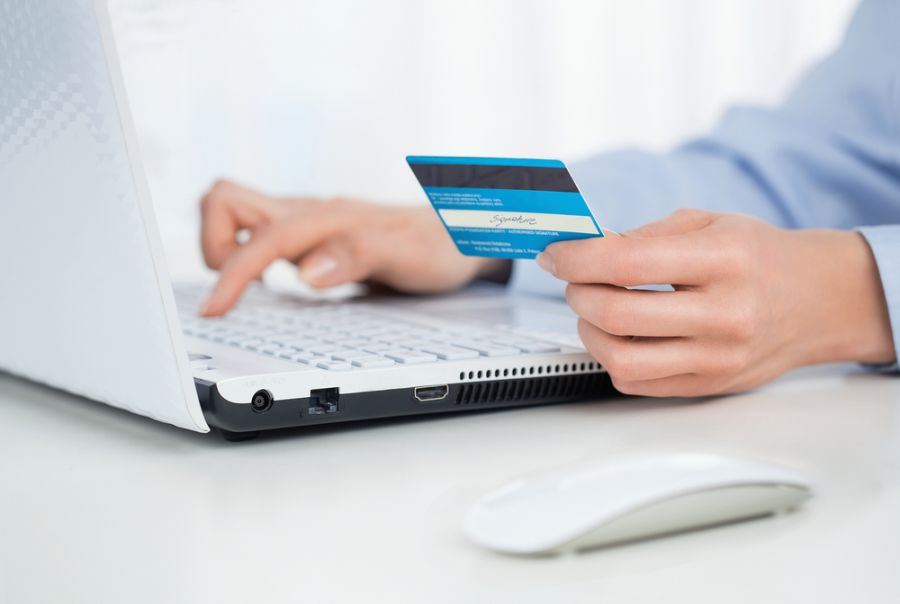Manage Your Debt - Let's Explore Your Options
GET STARTED NOWWhy You Should Make More Than the Minimum Payment on Your Credit Card

It’s easy to get caught in the trap of making the minimum payment on your credit card. Usually, this payment is manageable, and it staves off late charges for at least another month. However, minimum payments don’t prevent interest from compiling on the balance you’re carrying. Being able to dodge late fees every month only encourages you to procrastinate on the repayment of your entire balance and plunges you further into debt.
Why Minimum Credit Card Payments Are Bad
The primary goal of a credit card company is to make money off its customers. By only requiring you to pay a small percentage of your total balance, they’re setting you up for a cycle of ever-increasing interest fees so they can line their own pockets.
Interest accrues more as your balance gets higher, meaning a significant chunk of your payment goes toward interest. Over time, the interest can grow even larger than the initial borrowed amount.
Another thing to keep in mind is that your credit utilization ratio impacts your credit score. If you use more than 30 percent of your available credit, your score takes a hit, making it harder for you to get mortgages and loans and increasing the interest rates available to you.
How to Pay Off Your Credit Card Debt Faster
Pay What You Can
Paying off debt isn’t an all-or-nothing situation. Setting a goal to contribute more than the minimum payment does not mean you have to pay off your entire credit card balance at once.
Instead, take reasonable steps toward increasing your monthly payments. If your minimum payment is $50, try paying $60, $70 or even $80. If you can double your minimum payment to $100, you’re in even better shape – this will cut your repayment time in half.
Cut Back Spending
Sometimes the harsh truth is that we are overspending on luxuries instead of paying off our debts. While any budget involves a balancing act between spending, saving, investing and paying off debts, you may need to allocate more money toward credit card debt at this point in your life.
Look for places in your budget where you may be able to save a few bucks here and there. Limit yourself when it comes to:
- Dining out
- Fast food
- Coffee
- Name-brand groceries
- Clothes
- Movies
- Concerts
- Subscription services
- New gadgets
- Vacations
Something as simple as saying no to a new pair of jeans or cutting out one restaurant meal a week gives you an extra $40 to put toward your credit card debt each month.
Pay Credit Card Debt First
If you struggle to budget, it may be wise to pay off your credit card debt before spending money on anything else for the month. As soon as you get your paycheck, make a credit card payment. Then you won’t have to worry about spending the portion of your income on luxury goods that you really want to allocate to debt repayment.
Stop Using the Card
If possible, forbid yourself from using your credit card for purchases and only focus on paying more than the minimum payment. Take your card out of your wallet and hide it away if you must.
Put Extra Money Toward Debt Repayment
You may come into extra money through hard work or luck. Use any money beyond your normal income to pay back credit card debt, including:
- Bonus pay
- A raise
- Earnings from a side job
- Birthday and holiday gift money
- Tax refunds
These sums can put a dent in your debt.
Evaluate Interest Rates
Cards with higher interest rates will rack up debt quicker. If you have multiple credit cards, put your efforts toward paying off the cards with the highest rates first to minimize interest accrual as much as possible.
Another idea is to transfer your balance to a credit card with a lower interest rate, ideally with 0 percent APR. However, you have to be diligent about paying down the debt during the promotional period or you may end up paying more. Also, be sure not to use the cards you are paying off – otherwise, you could have twice the debt you are trying to pay down.
Start Paying Off Credit Card Debt With American Financial Solutions
Credit card debt can be overwhelming, and you may feel as if it’s impossible to make more than the minimum payment. If that’s the case, you could benefit from chatting with the credit counselors at American Financial Solutions. They’ll teach you how to tackle your debt and help you build a more secure financial future.
Call us at (888) 864-8548 today for credit advice and a personalized debt management plan.
https://www.thebalance.com/what-is-a-good-credit-utilization-ratio-960548
https://www.thebalance.com/breaking-minimum-payment-habit-1289632
https://www.nerdwallet.com/blog/credit-cards/minimum-payment-credit-card/
https://www.thepennyhoarder.com/smart-money/how-to-pay-off-credit-card-debt-fast/
Published Sep 5, 2018.
